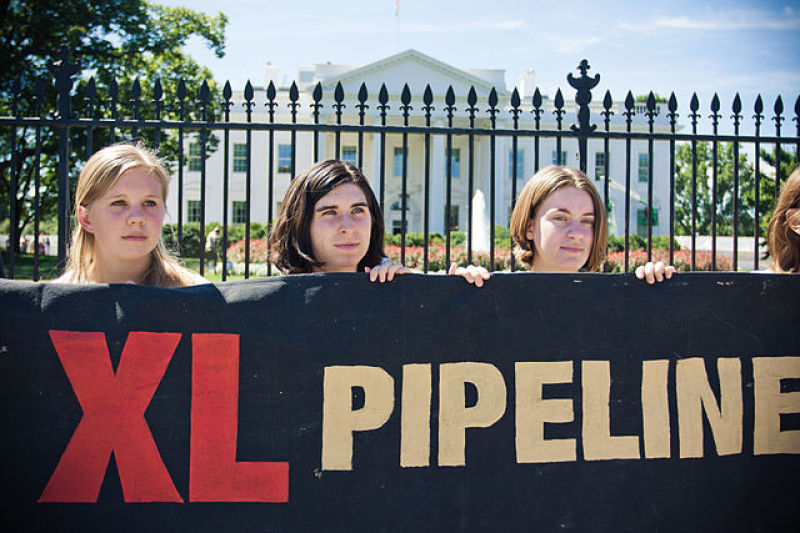

A Native American opponent of TransCanada's Keystone XL oil pipeline proposal told the media on Tuesday that "they [TransCanada] will physically have to go through us" to build the 1,179-mile (1,897-km.) resource; but, political power has stalled the project for the time being after Democratic Senator Mary Landrieu was unable to secure the 60-vote total that was required to pass the bill through the U.S. Senate. The final result was 59 against, and 41 in favor.
Landrieu is backing a massive project that was first proposed in 2005 for then-Secretary of State, Hillary Rodham Clinton, to approve in 2011. However, an opposition movement that began with protests outside the White House was built into a multi-million dollar campaign, as environmentalists and the oil industry locked horns. Since that time, the project has been a glaring point of controversy in Washington.
The supporters of the pipeline, which would extend from Alberta to refineries in the Texan Gulf, have heavily pushed the job-creation angle, but critics maintain that they are misleading. South Dakota rancher Paul Seamans initially assisted TransCanada, but later swapped sides after he was unable to find any reputable data on exactly how many jobs the pipeline would create. According to the U.S. State Department, a total of 35 permanent jobs would be the long-term outcome-after the thousands of jobs for the construction phase are no longer needed.
Seaman is now part of the "NoKXL" South Dakota opposition group that is part of a broader movement that is primarily opposed to the pipeline on environmental grounds. Some of the partnerships in the South Dakota alliance have previously blocked uranium, coal mining and toxic dumps, so the state's history provides a firm foundation.
Given the pipeline's daily potential to transport 83,000 barrels of crude oil, the proposal is not going to fade away quietly. Senator Mitch McConnell released a statement immediately after the voting results were revealed, stating that he will reintroduce the bill in January 2015, which is the same month that a decision will be handed down in a Keystone-related lawsuit in the Nebraska supreme court-White House advisors have repeatedly said that they are awaiting the Nebraska verdict before they make a final call on the matter.

















